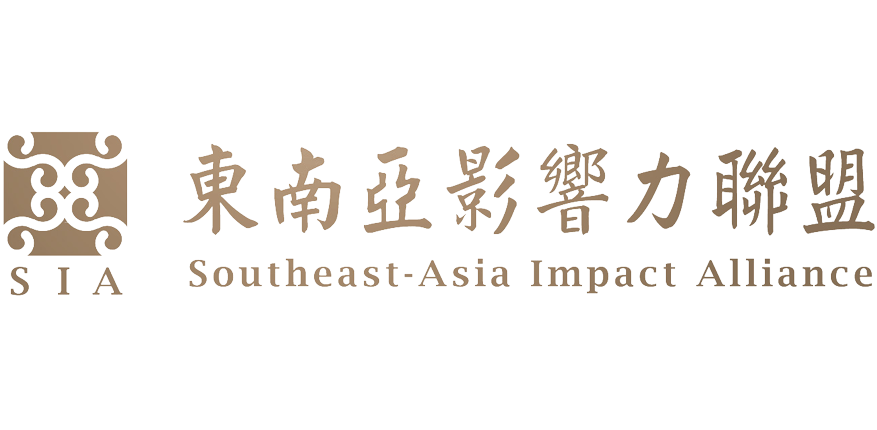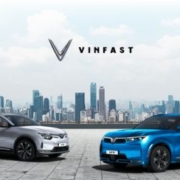Selling Instant Noodles in Europe, Returning Home to Build Electric Cars… “Vietnam’s Li Ka-shing ” Gambles to Create the World’s Third-Largest Automaker by Market Value
Within two weeks of its listing, Vietnam’s electric vehicle newcomer, VinFast, surged to become the world’s third-largest automotive company by market value, sparking a whirlwind in the capital market. Behind this success is Vietnam’s richest person, Pham Nhat Vuong, described as a “savvy and optimistic gambler.”
After its debut on the US stock market, VinFast’s stock price soared, reaching a market value of $95 billion by the end of August, trailing only Tesla and Toyota among global automakers. However, it experienced a sharp decline in early September. This roller-coaster ride in the stock market is remarkable, considering that VinFast sold fewer than 8,000 vehicles last year. Yet, it has become a significant player alongside Tesla and BYD, and Pham Nhat Vuong, the founder, deserves much credit for this achievement.
Pham Nhat Vuong is Vietnam’s first-ever billionaire, with a current estimated net worth of about $6 billion. Hong Kong’s “Sing Tao Daily” has even dubbed him the “Li Ka-shing of Vietnam,” as his journey mirrors VinFast’s ascent.
Fearless Gambler! He Sold Instant Noodles in Ukraine and Struck It Rich Selling to Nestlé
When people discuss Pham Nhat Vuong’s rise to wealth, they often mention his humble beginnings in Ukraine, where he started by selling instant noodles. In August 1993, he initially borrowed $10,000 from friends at an 8% monthly interest rate, later securing a loan from a bank at a 12% monthly interest rate to establish the “Mivina” brand. This venture occurred during Ukraine’s economic crisis, and Pham risked losing everything to produce instant noodles, an unfamiliar product to the local population. Such a gamble was not one that everyone would dare to take.
However, hindsight has proven his gamble to be right. Mivina instant noodles gained immense popularity. Upon his return to Vietnam, Pham Nhat Vuong sold the business for $150 million to the Swiss food giant Nestlé.
This “optimistic gambler” personality also highlights his bet on electric vehicles. Despite VinFast selling fewer than 8,000 vehicles last year and relying on suppliers in China for components, and with Vietnam’s average income still not at a level to afford electric cars, Pham Nhat Vuong remains optimistic about the market’s potential. He says, “Hyundai can do it, Toyota can do it, so why can’t we do it in Vietnam?”
However, if he were just an overly optimistic gambler, he would be no different from the average person who buys lottery tickets and hopes to win the jackpot. His rise to become the richest person is attributed to his shrewd calculations as well.
Smart Calculations! He Sells Real Estate and Builds Cars in Vietnam
Endorsed by a Former Prime Minister, He Rides the Trends to Success
The first smart move he made was knowing how to find the right people. After returning to Vietnam, Pham Nhat Vuong ventured into the luxury real estate business and gained support from “friends” in the Ministry of Defense. This time, VinFast’s listing on the U.S. stock market was accomplished through a special purpose acquisition company (SPAC), with the owner of this shell company being Lawrence Ho Yau Lung, the son of Macau’s gambling kingpin.
The second smart move was recognizing trends. In recent years, the Vietnamese government has strongly supported the local automobile industry, and Pham Nhat Vuong responded to the call by founding VinFast. “Vietnam needs at least one globally recognized brand,” he stated.
Local Taiwanese entrepreneurs in Vietnam believe that VinFast’s rise is closely related to the government’s planned economic strategy. Vietnam nurtures specific industries through its “top-notch” strategy, where these industries are entrusted to a few major local conglomerates for development, and then they receive full support from the government. In the automotive sector, VinFast is the chosen “top-notch” entity.
As Pham Nhat Vuong had already amassed significant wealth through real estate and had no background in the automotive or electronics industries, he lacked the baggage associated with these sectors. Furthermore, with government support, he could directly invest in buying crucial components and integrate them into his electric cars.
For example, in the case of electric buses, VinFast initially purchased the automotive electronic systems from Taiwanese manufacturer Advantech, batteries from China’s CATL, and engaged global Tier-1 automotive component manufacturer ZF for system integration. A tech industry Taiwanese entrepreneur who worked with VinFast remarked that the company’s distinctive feature is speed: quick decision-making and execution. “They want to have something out as soon as possible, and they want it to be good, preferably a brand name!”
Not only did he accurately predict domestic trends, but Pham Nhat Vuong also had a clear view of global dynamics. Amid the U.S. – China rivalry, Vietnam is seen as an alternative to China. In July this year, he announced a $2 billion investment to build an electric vehicle production facility in North Carolina, USA. President Biden even tweeted his congratulations, stating that this move would bring employment opportunities to the United States.
In terms of international competition, Southeast Asia’s automotive manufacturing powerhouse, Thailand, is just beginning to transition into electric vehicles. While China is ahead in electric vehicles, it is challenging for Chinese manufacturers to enter the United States or other pro-American countries, such as India, due to the U.S.-China competition. Therefore, this situation has provided VinFast with an opportunity to enter the export market for electric vehicles.
Even VinFast’s volatile stock price is a result of Pham Nhat Vuong’s operations. Since the company only floated 1% of its shares on the market, the stock price is easily manipulated. Such dramatic price fluctuations have greatly benefited its recognition. The last electric vehicle manufacturer with such dramatic price fluctuations was called Tesla.
The Hong Kong Economic Journal analysis suggests that VinFast’s rise is attributed to the combination of two major concepts: “de-Chinafication” and “electric vehicles.” The former led the market to embrace Vietnam, while the latter made people believe in its potential. Pham Nhat Vuong has taken advantage of these favorable conditions, proving that he is not just an overly optimistic gambler but also a shrewd calculator.
Refer to the original post here
For additional details, refer to our SIA services | Link



